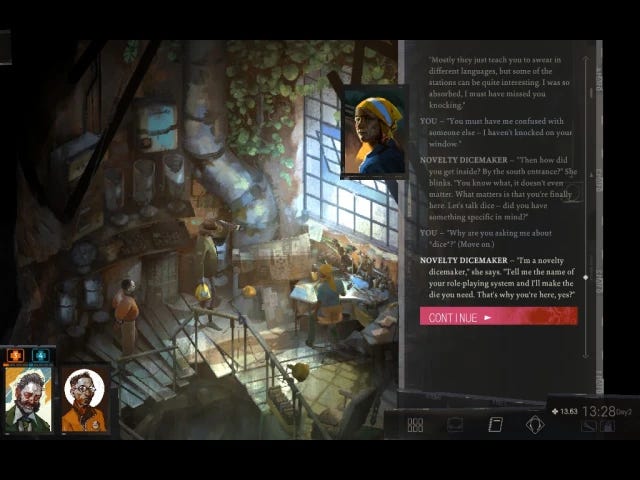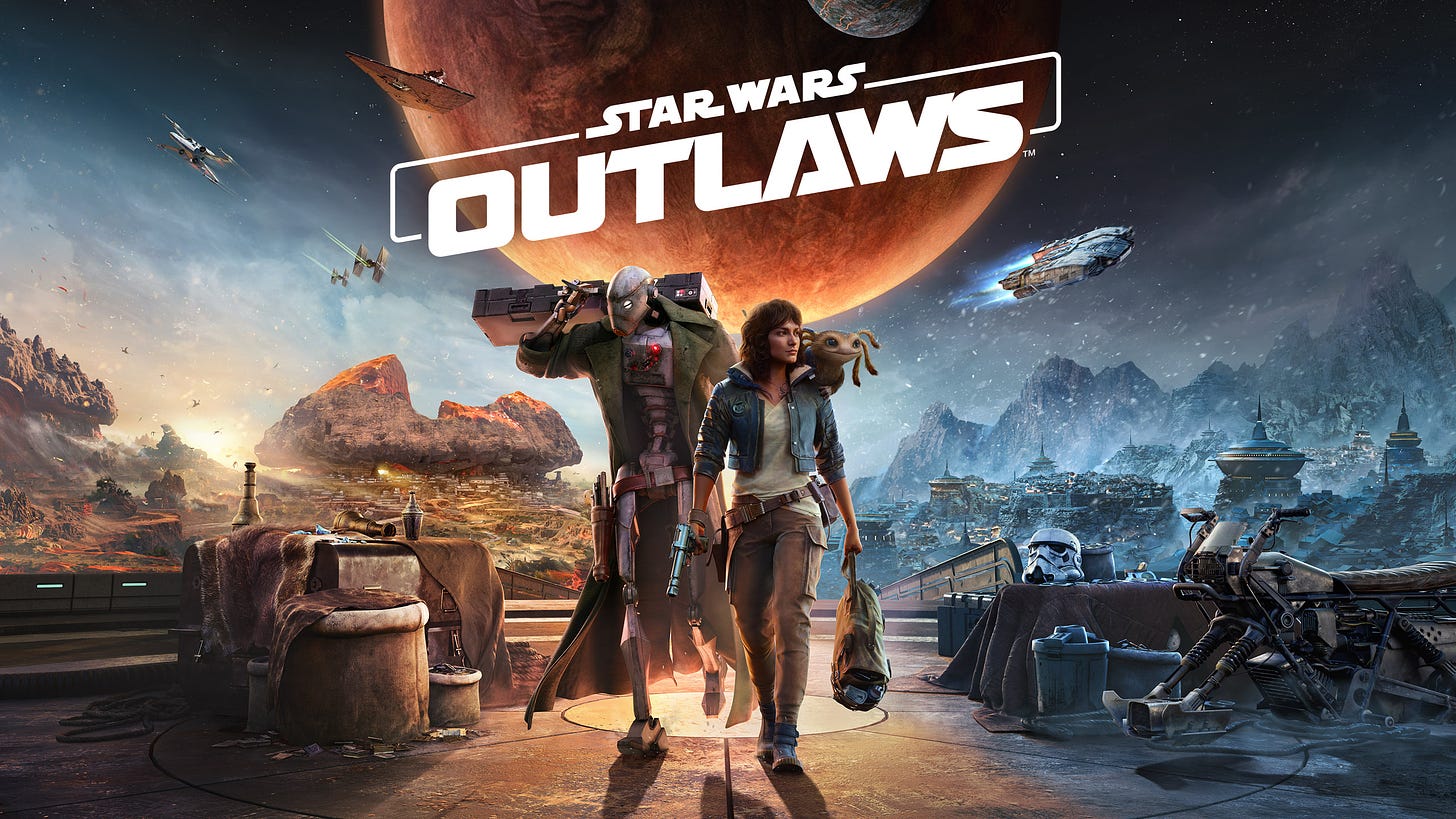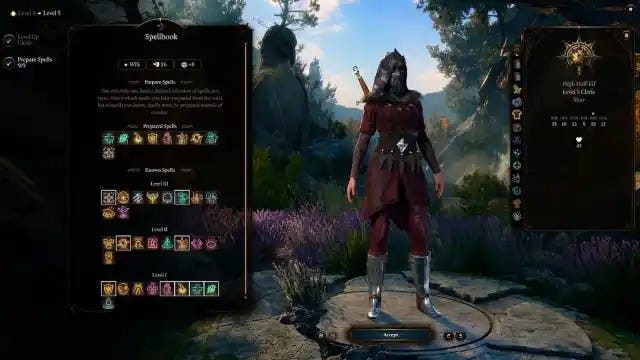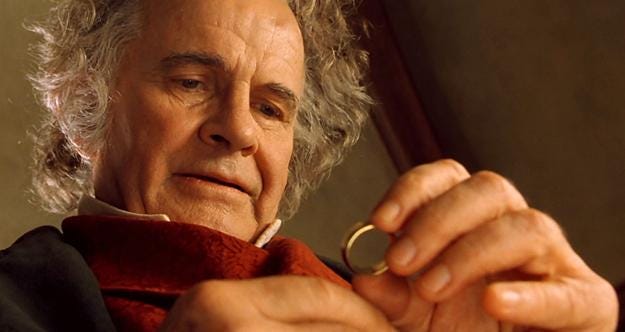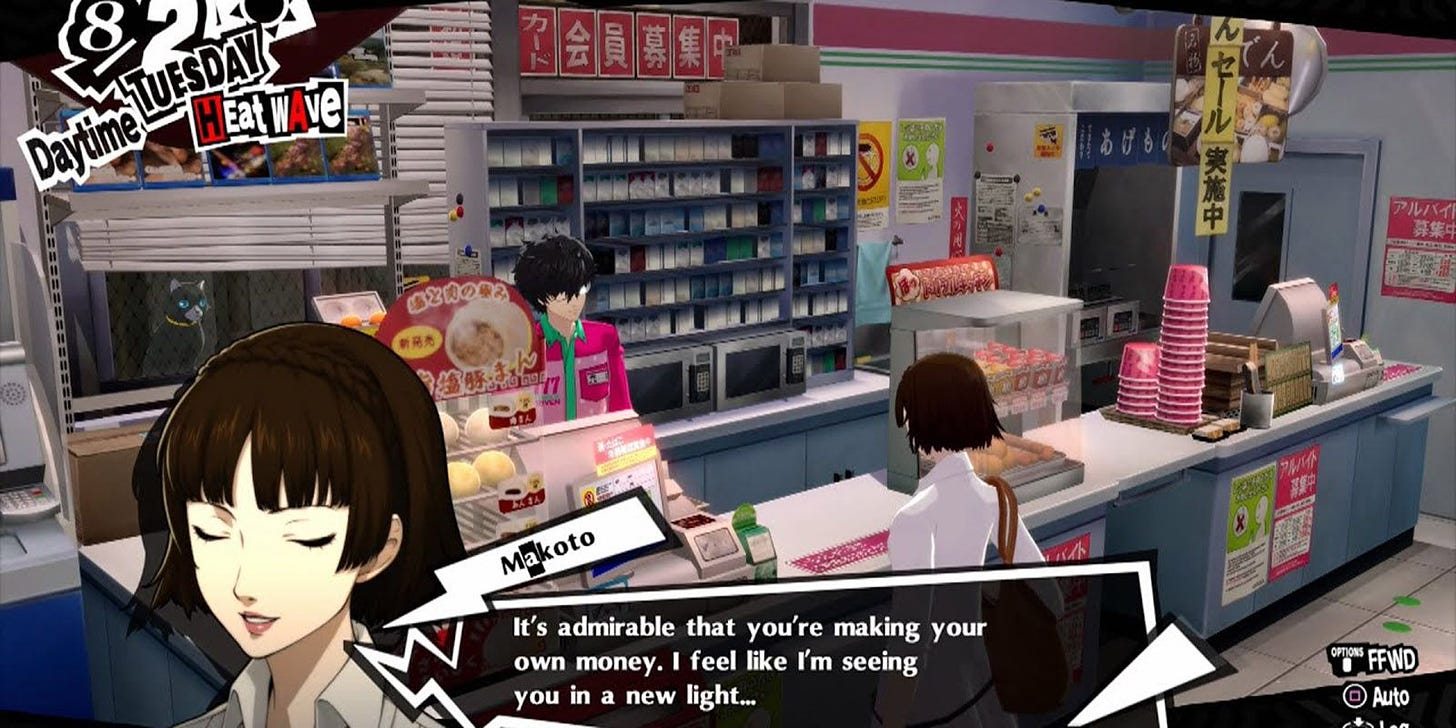Tips For Writing a Video Game Story That WORKS
(Where "works" means "makes more money.")
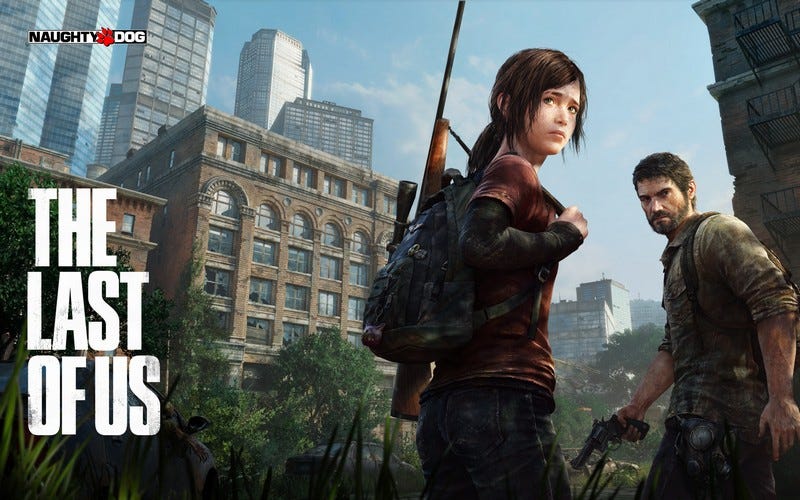
Bonus story tip: If your players travels with other characters, they can chat during the game stuff. It helps the player remember the story during all the stabbing.
"Every minute a player spends not interacting with your story dilutes the power of the story." - Vogel's Third Law of Video Game Storytelling
Suppose you want to write a single-player video game with a good story.
Assume you're writing a game to make money. There are lots of ways to skin that particular cat. You could make a freemium, open-ended app. A gacha game. Some competitive thing that people play for a thousand hours. You could have done that, but you, like a madman, decided to rock things old-school.
It's single-player, and you want the story to be good.
How Do You Tell When Your Game's Story Is "Good"?
When it makes your game earn more money.
Does the story so amuse people they tell their friends? Quote your funny lines at nerd parties? Meme your characters? Cosplay as your characters? Write fan-fiction about your game?
In other words: Is your story so good that people give you free advertising? (And word-of-mouth is the best advertising.)
Then it's good.
So how do you do that?
I can't say, obviously. That's where the art is. A million words have been written about storytelling. My #1 piece of advice is always: Be a genius.
However, I have been selling game stories for a long time, and I've observed that some things work better and some work worse. I've done things well and made some gruesome errors. I can offer some opinions and observations, if you want people to care about the words.
(By the way, our Kickstarter for our next story-heavy RPG, Avernum 4: Greed and Glory, is almost done and has done great.
Take a look!)
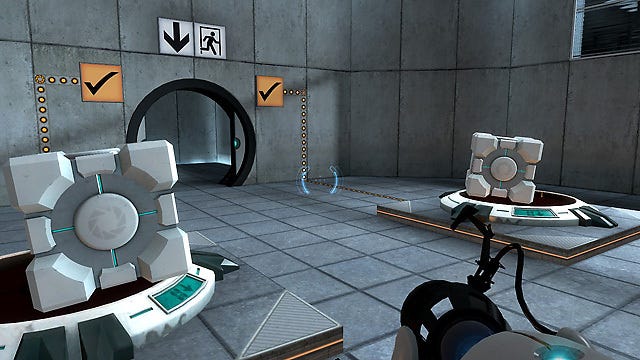
Portal has the ideal combo: Short game, with really sharp, funny writing. Possibly a perfect single-player game.
1. Shorter Stories Hit Harder
Single-player video games are too long.
Sure, there are people who want to sink thousands of hours into a game. Look at the list of the
most popular games now. The top of the list is all open-ended games, meant to suck up time forever. So people with infinite time to kill are not going to be your customers.
If you're writing a game, with a beginning, middle, and end? You kind of want people to see the end part. Otherwise, they're paying money for food that's going in the trash. It's a waste for them and a waste for you.
Consider Baldur's Gate 3, a very good game I have written a lot of kind things about. (If you are reading this far in the future, think instead of the most recent, critically-acclaimed hit story game that the vast majority of players didn't finish.)
I know a lot of people who started Baldur's Gate 3. Almost nobody who finished it. You can probably finish it in 80 hours, if you rush. Looking at Steam Achievement percentages, only about 22% reached the end. For a game this length, that is an AMAZINGLY high percentage. Yet, it's still really low for a game we're calling a classic.
This is desperately sad. We're spending so much time and money making so much material that nobody has time to play, because they also need to exist in the real world.
Baldur's Gate 3 is too long. Yeah, I know, you loved this character or that side quest or whatever. Doesn't matter. That percentage doesn't lie. It doesn't matter how good your content is if nobody sees it.
A great exercise for a game writer: Brew some coffee, sit down, lock in, and be one of the few, the proud, who actually manages to finish Baldur's Gate 3.
Then figure out how you would cut 30 hours from its playtime.
It's a really good exercise. It's not even difficult. Your answers will be different from mine. That's where the art is. But it would make a better game that leaves a better impression on the player. Remember, people meme like crazy about the characters in Baldurs' Gate 3 that you meet in the first hour, but I doubt one player in ten could give a coherent explanation of its tangle of a story.
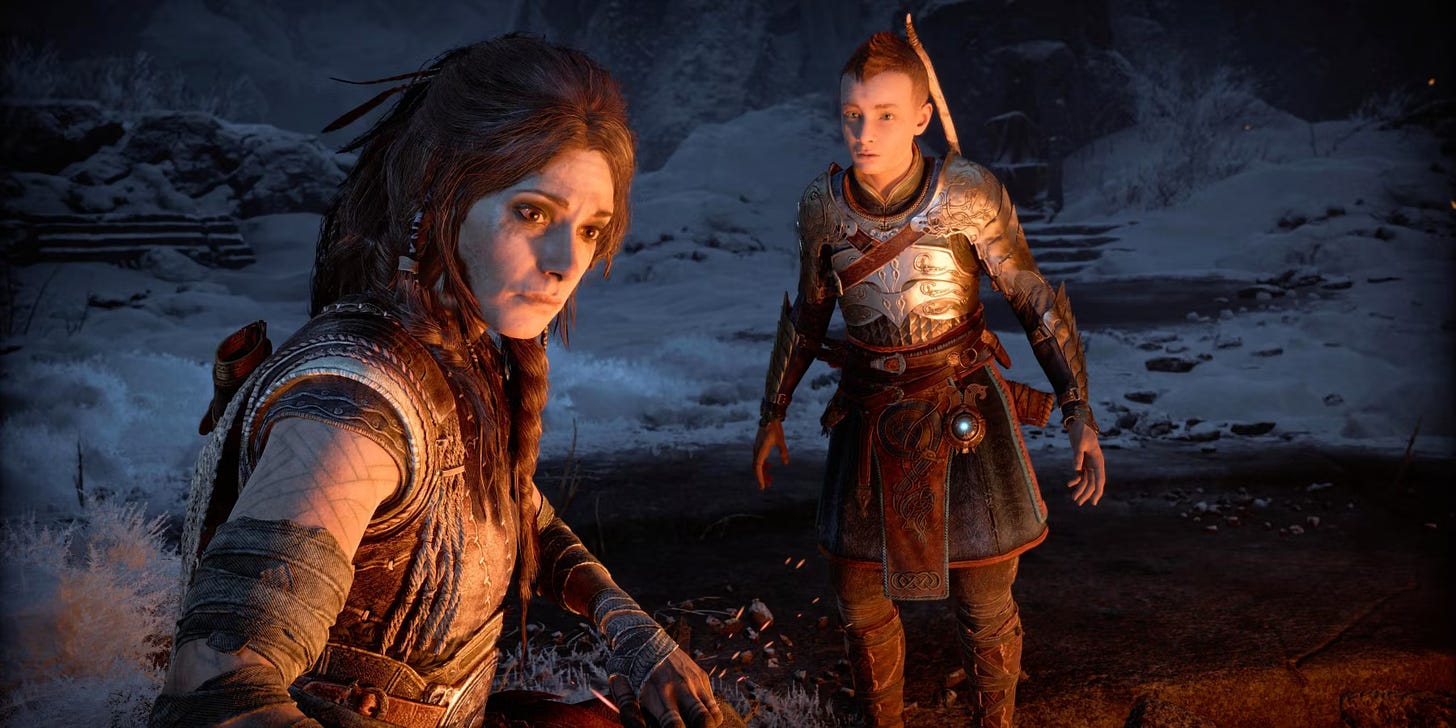
Others liked the story of God of War Ragnarok way more than I did. It did do a good job of keeping a story with a lot of parts clear. Again, they made sure you almost never wander alone. A great way to enable a continuous drip of story.
2. Distractions Make Players Forget Your Story
I
wrote last time about how most of the activities expected in a video game aren't good for storytelling.
Long story short, what is most of your time in a game spent doing? Grinding. Traveling. Killing minor foes. Getting levels and gear. Training. Looking for secret doors. Editing your character's face.
These are good things. A video game should have game in it.
Just remember: Every minute a player spends away from the story is a minute of forgetting the story.
Designers tend to lard in lots of these game activities. They're cheaper to make. Nobody wants to cut their pet action sequence, even if it's one of ten nearly identical such sequences. (Old, true writing advice: "Kill your babies.") Nobody wants to write a 20 hour game if a 40 hour game is in their grasp. Nobody wants to write a 40 hour game if an 80 hour game is in their grasp.
I can't stress this enough: If a player wants quantity, there are tons of popular, free games out there that can last literally forever. I think this market is much more starved for games that give full, complete experiences that can be enjoyed by someone with kids and a job.
I've gone beyond the "story" issue with this one, and yet not. For a single-player game, a story is a key part of the experience. You can't tell your friends how much you loved a story if you only saw a third of it.
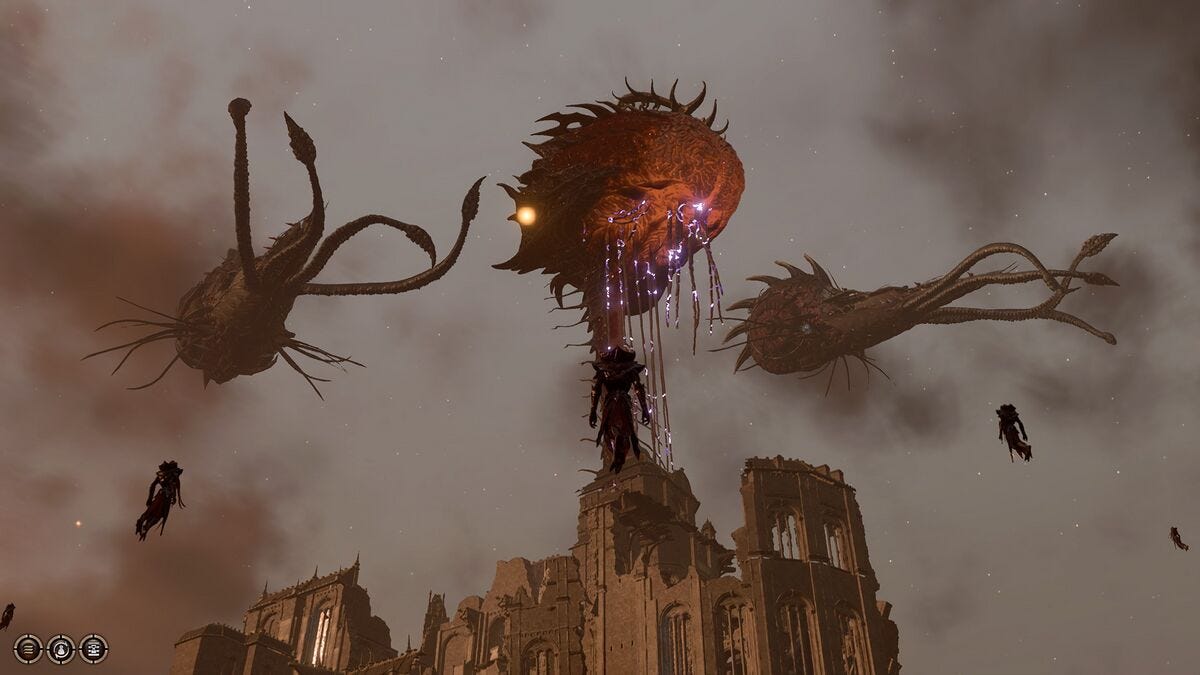
Baldur’s Gate 3 story: Kill that floaty brain thing in the middle. But it put mind-control worms in your head and you have to remove them. That is a very strong trunk of a story. I think they loaded the core story with too much extra baggage.
3. KISS = Keep It Simple, Stupid
Even after you pare back the game in your game to a playable amount, there will still be a bunch of hours of play in it. During those hours of walking and fighting (and, in Baldur's Gate 3, searching 20000 identical crates), players will forget a ton of story.
So to make your story memorable, keep it simple. The stories players remember most had at their spine only a handful of very strong, very clearly drawn elements. (The Last of Us story was made of: Joel. Ellie. Zombies. The Fireflies. Just four!)
I think most game stories are written by young writers who grew up on a diet of genre fiction and are ecstatic about the chance to make their own thing. Alas, this understandable enthusiasm comes at the cost of restraint. I have fallen victim to this myself.
Don't make a game bloated with nations and factions and characters and settings. This is particularly a plague in RPGs. If you introduce five countries, players will forget three of them. If they aren't super punchy and memorable, players will forget all of them.
As in many things, emulate Tolkien. When preparing to write Lord of the Rings, he created an infinite blob of lore, most of which you don't want to read.
When he settled down to write 900 pages of book, though, he pared it down to five major elements: Hobbits. Elves. Orcs and Sauron. Humans of Rohan. Humans of Gondor. All of them are super-memorable. Once you have them down, you have the trunk for the entire book, and then it's easier to remember the branches. (Saruman. Ents. Dwarves. Palantirs. Tom Bombadillo.)
Tolkien had the discipline to pare down what he wrote to an easily remembered core. Martin does the same thing with the Game of Thrones books by having its huge crush of information filtered through a handful of very clear point of view characters.
(These authors are helped by being geniuses. I really can't stress enough the importance of, whenever possible, being a genius. Genius is rare. If you are lucky enough to have a good writer on your team, keep that person.)
If you're going to make a ton of story, you have to find a way to make it fit in the players head. In a game, which is full of game, you have to work twice as hard.
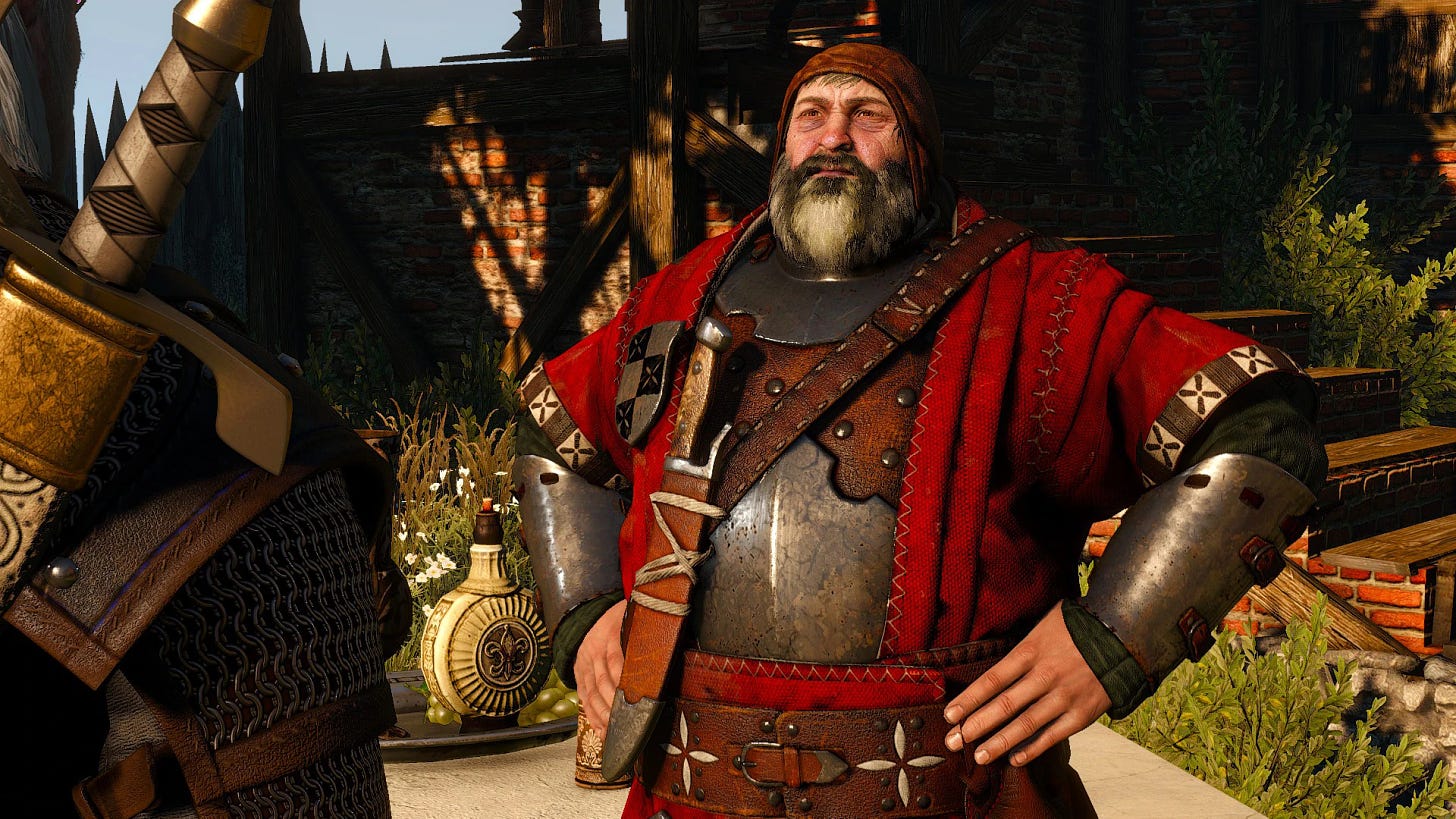
Remember the crazy-ass baron storyline in
The Witcher 3? It was perfect. Short. Clear. Self-contained. Intense. And you could forget everything about it once it was done. 10/10. No notes.
4. Be Funny
When someone asks me what an underserved market is in video games, I always have the same first answer: Humor. Humor is hard, and there's never enough of it. Humor is easier to sell than anything else.
Portal was a solid 2 hour puzzle game. What made it iconic was that the story was funny as hell. Walking simulators are done as a genre, but Stanley Parable was able to be a hit twice (release and remaster) by being funny as hell. The Borderlands series is still eating out on how funny Borderlands 2 was in 2012.
There are lots of sorts of funny. Some are easier than others. Humor based on memes or being ironic about your game genre ("funny" RPGs are plagued with this) is common and easy. But I can't judge. If your game makes people laugh, you win, no matter what route you take to it.
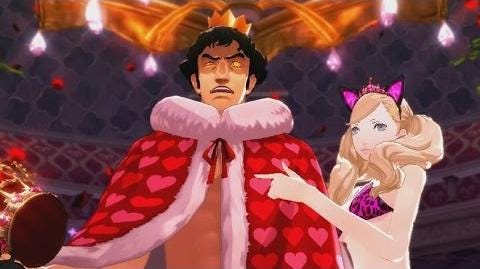
Remember
Persona 5? It had eight chapters. Each chapter had exactly one very memorable, hateable villain to fight. When it was defeated, it was gone. This broke the game up into manageable stories and kept what you had to remember to a minimum. Very nice.
Are Video Games A Good Storytelling Art Form After All?
I'm really not sure. It's works for me, but I'm a tiny insect in a huge industry.
Games approach being art in a lot of ways. Bloodborne is a classic game with a story that is completely incomprehensible to me. However, as a work of visual art, it is stunning. Minecraft is a strangely lovely thing to immerse yourself in, and it has no coherent story at all.
And yet ... People keep telling stories in games. A story in a game serves an incredibly valuable purpose: It gives structure to the experience.
A lot of people don't want sandboxes. When they enter a game, they want a finite experience. A start, a middle, a satisfying conclusion, and you can go on with your life. To have this, you need a story. If you're going to have a story, it should be engaging. Also, if you don't have a story that ends, how do you know when your experience is done?
Humanity is a storytelling species. Stories are how we communicate with and teach each other. Stories are how we mentally organize our lives. Therefore, video games can't escape story. It's the best way to make the game experience make sense.
So try to do it right. If it works, it's free money.




























